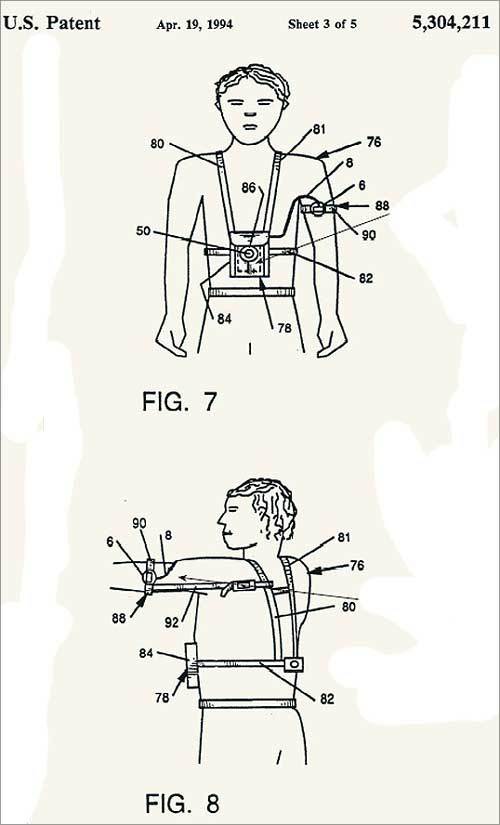Why Radical Islam Just Won’t Die
Friday, March 28, 2008I tried to show that radical Islamism is a modern philosophy, not just a heap of medieval prejudices. In its sundry versions, it draws on local and religious roots, just as it claims to do. But it also draws on totalitarian inspirations from 20th-century Europe. I wanted my readers to understand that with its double roots, religious and modern, perversely intertwined, radical Islamism wields a lot more power, intellectually speaking, than naïve observers might suppose.
I declared myself happy in principle with the notion of overthrowing Saddam Hussein, just as I was happy to see the Taliban chased from power. But I wanted everyone to understand that military action, by itself, could never defeat an ideology like radical Islamism — could never contribute more than 10 percent (I invented this statistic, as an illustrative figure) to a larger solution. I hammered away on that point in the days before the war. And today I have to acknowledge that, for all my hammering, radical Islamism, in several of its resilient branches, the ultra-radical and the beyond-ultra-radical, has proved to be stronger even than I suggested.
A lot of people right now make the common-sense supposition that if extremist ideologies have lately entered a sort of grisly golden age, the Bush administration’s all-too-predictable blundering in Iraq must bear the blame. Yes, certainly; but that can’t be the only explanation.
Extremist movements have been growing bigger and wilder for more than three decades now, during that period, America has tried pretty much everything from a policy point of view. Our presidents have been satanic (Richard Nixon), angelic (Jimmy Carter), a sleepy idiot savant (Ronald Reagan), a cagey realist (George H. W. Bush), wonderfully charming (Bill Clinton) and famously otherwise (George W. Bush). And each president’s Middle Eastern policy has conformed to his character.
In regard to Saddam Hussein alone, our government has lent him support (Mr. Reagan), conducted a limited war against him (the first President Bush), inflicted sanctions and bombings (Mr. Clinton, in other than his charming mode), and crudely overthrown him. Every one of those policies has left the Iraqi people worse off than before, even if nowadays, from beneath the rubble, the devastated survivors can at least ruminate about a better future — though I doubt that many of them are in any mood to do so.
And each new calamity for Iraq has, like manure, lent new fertility to the various extremist organizations. The entire sequence of events may suggest that America is uniquely destined to do the wrong thing. All too likely! But it may also suggest that America is not the fulcrum of the universe, and extremist ideologies have prospered because of their own ability to adapt and survive — their strength, in a word.
I notice a little gloomily that I may have underestimated the extremist ideologies in still another respect. Five years ago, anyone who took an interest in Middle Eastern affairs would easily have recalled that, over the course of a century, the intellectuals of the region have gone through any number of phases — liberal, Marxist, secularist, pious, traditionalist, nationalist, anti-imperialist and so forth, just like intellectuals everywhere else in the world.
Western intellectuals without any sort of Middle Eastern background would naturally have manifested an ardent solidarity with their Middle Eastern and Muslim counterparts who stand in the liberal vein — the Muslim free spirits of our own time, who argue in favor of human rights, rational thought (as opposed to dogma), tolerance and an open society.
But that was then. In today’s Middle East, the various radical Islamists, basking in their success, paint their liberal rivals and opponents as traitors to Muslim civilization, stooges of crusader or Zionist aggression. And, weirdly enough, all too many intellectuals in the Western countries have lately assented to those preposterous accusations, in a sanitized version suitable for Western consumption.
Even in the Western countries, quite a few Muslim liberals, the outspoken ones, live today under a threat of assassination, not to mention a reality of character assassination. Ayaan Hirsi Ali, the Somali-Dutch legislator and writer, is merely an exceptionally valiant example. But instead of enjoying the unstinting support of their non-Muslim colleagues, the Muslim liberals find themselves routinely berated in the highbrow magazines and the universities as deracinated nonentities, alienated from the Muslim world. Or they find themselves pilloried as stooges of the neoconservative conspiracy — quite as if any writer from a Muslim background who fails to adhere to at least a few anti-imperialist or anti-Zionist tenets of the Islamist doctrine must be incapable of thinking his or her own thoughts.
A dismaying development. One more sign of the power of the extremist ideologies — one more surprising turn of events, on top of all the other dreadful and gut-wrenching surprises.
Labels: Radical Islam


